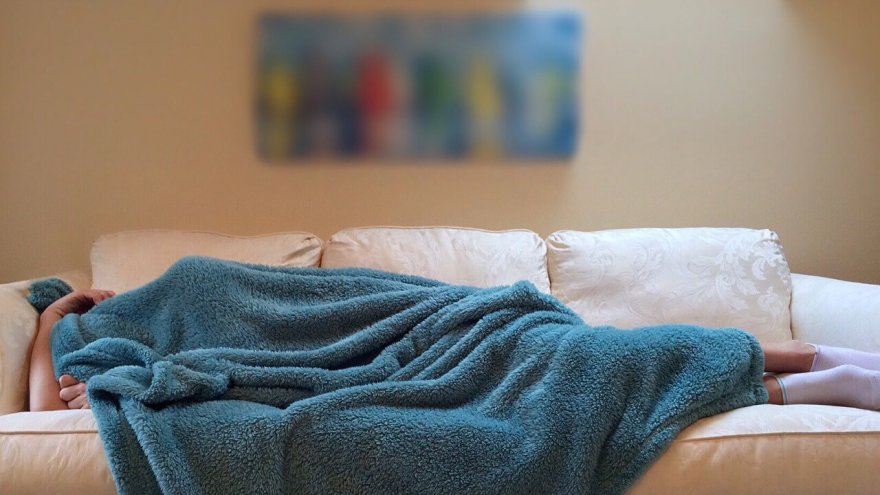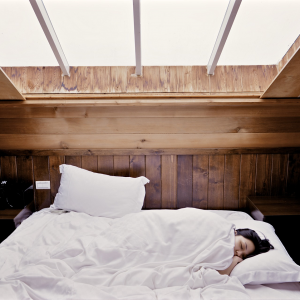We Ask Ourselves To Nap or Not To Nap?

As runners, we know how to best take care of ourselves in order to keep our bodies fine tuned and ready to perform at our highest capabilities. For the most part, we know which foods to nourish ourselves with, we know when to go hard and when to take it easy, we know how to train outside of the roads and treadmill to make sure our bodies retain strength, and we know how and when to rest and sleep… right? Unfortunately, the average adult does not get the 7 to 9 hours of sleep that is recommended, in order for us to focus during the day, perform at our very best, and for the systems in our bodies to function best at. We are more than just runners – we are wives and husbands, girlfriends and boyfriends, mothers and fathers, siblings and children, workers and errand-runners and housekeepers and to-do list finishers and priority keepers and the list goes on and on about what we have and want to do each day. Sometimes, that means that before we know it, it is almost midnight and we are only just thinking about getting in to bed… only to turn right around in five hours when the alarm clock goes off! Despite sacrificing sleep at night, we can still make sure our bodies are well rested and getting the recovery and recuperation they deserve. It might be challenging, but scheduling in a nap each day might be the answer to your fatigue!

What Happens When We Don’t Get Enough Sleep?
Not getting enough sleep can really cause the body to suffer. Sure, we all have those nights where we just can’t fall asleep or stay asleep, but consecutive nights in a row of this can lead to some major repercussions. Not only are we grumpier and more irritable to those around us, but your work and ability to accomplish even minor tasks suffer greatly. Sleepless nights often lead to unproductive workdays because our brains are not rested well enough to stay focused and function at a high level. Internally, lack of sleep can also wreak havoc on your organs and pose a risk of serious medical conditions. Your immune system suffers, which makes you more susceptible to getting sick (which is basically purgatorial for us runners!). A lot of folks see the scale go up as their sleep goes down, largely due to the fact that our bodies KNOW they are tired and if they can’t sleep, they send hunger cues in an effort to get some energy through caloric intake. And then weight gain can of course lead to a myriad of other health problems, including heart disease and diabetes. You may experience your mental health suffering too. Depression and increased anxiety have been found to be connected to poor sleeping patterns and habits.
Ain’t Nobody Got 8 Hours to Spare!
We know what the facts and statistics tell us – getting an average of eight hours of sleep every night is what we should all aim to do. The problem is that most of us can’t seem to find a spare hour to just get the laundry done, let alone EIGHT to lay down and go to sleep. There is just too much to do! This is where the beauty of the nap comes in, and it might just be a runner’s’ best friend. Naps are shorter, and they are, well… less involved. What we mean by that is that you don’t have to put the kids down, make sure you are prepped and ready for the next morning, showered with clean teeth and in your pajamas, and that the rest of the to-do list has been done. You can stay in your clothes, plop down in a quiet and comfortable spot and catch a few quick z’s and then be up and at ‘em 20 minutes later! Most people actually report that napping for just fifteen to twenty minutes a day actually helps them feel MORE rested than an hour-long nap. What’s more is that you can get creative in how you take them. Sure, not everyone has the convenience of being able to go home each day to take a nap. But if you use your lunch hour right, you can squeeze in a quick bite to eat and a nap out in your car, and refuel yourself to conquer the rest of the afternoon! Honestly, for those of us with kids and with a million after-work and after-school obligations, this short window of time might actually provide us some of the most restful sleep we’ll get! The best part is that there’s science backing the effectiveness of the “Power Nap,” and runners are top of the list for people who can benefit. This is mostly due to the fact that sleep has four stages: the drowsy period in which you are falling asleep, a light sleep stage, a deep sleep sage and then the deepest level of sleep. The Power Nap falls within stage 2, so the body shuts down and the brain can turn off but the deepest, drowsiest levels of sleep aren’t reached (which is what happens when you take a multi-hour nap, and why it can seem harder to wake up from those). It’s fast, and has extremely positive effects in helping rejuvenate you. So what does that mean for us runners? Our tired muscles and minds benefit in a HUGE way from just a simple 20 minute shut down, and we are able to accomplish more at a higher level of effectiveness – meaning YES you can squeeze in that run on top of work, school, family, chores, and grocery shopping!

The Drawbacks of Napping (And Why You Shouldn’t Be Concerned By Them!)
Probably the biggest drawback of napping is what is called “Sleep Inertia.” Sleep inertia occurs when you sleep a bit too much and enter into those later stages in the sleep cycle, resulting in fatigue, grogginess, and feeling disoriented. Another downside might occur if your naps do tend to last longer than the ‘power nap’ window, and lead to not being able to sleep as well or as long at night (which also might suit you just fine, if you are struggling to make enough time for adequate sleep in the evenings anyway. Finally, it might just be (or seem) impossible to find the time to nap, and that’s legitimate. However, if you set an alarm to make sure you don’t oversleep during your nap, you can easily avoid sleep inertia. If you already have trouble sleeping at night, maybe consider cutting down the amount of hours you sleep during the night, and make up some of that with a nap. And finally, refer to the tips above about the lunch hour power nap, if you are struggling to figure out a time to squeeze in a nap. And even if napping during the work week just isn’t going to happen, you can still benefit from a nap on a lazier weekend afternoon!
Sources
- , Napping: Do's and don'ts for healthy adults, Mayo Clinic
- , THE PHYSIOLOGY OF NAPS AND THE IMPACT ON ATHLETIC PERFORMANCE, Bridge Atheltic Blog
Latest Articles
 Is Running on a Treadmill Easier Than Running Outside?Runners have their own preferences, whether it is treadmill running, running outside on the road, or exploring trails. So...
Is Running on a Treadmill Easier Than Running Outside?Runners have their own preferences, whether it is treadmill running, running outside on the road, or exploring trails. So... Is It OK to Use Trail Running Shoes on the Road?While trail running shoes can be used on roads, especially in situations where a runner encounters mixed terrains or pref...
Is It OK to Use Trail Running Shoes on the Road?While trail running shoes can be used on roads, especially in situations where a runner encounters mixed terrains or pref... How to Fix Sore Quads After Running?Rest, ice, gentle stretching, and over-the-counter pain relievers can help soothe sore quads after running. Also, ensure ...
How to Fix Sore Quads After Running?Rest, ice, gentle stretching, and over-the-counter pain relievers can help soothe sore quads after running. Also, ensure ... 10 Fruits With The Most Electrolytes to Replace Sports DrinksThese fruits are high in electrolytes such as potassium, magnesium, and calcium, essential for hydration, muscle function...
10 Fruits With The Most Electrolytes to Replace Sports DrinksThese fruits are high in electrolytes such as potassium, magnesium, and calcium, essential for hydration, muscle function...

